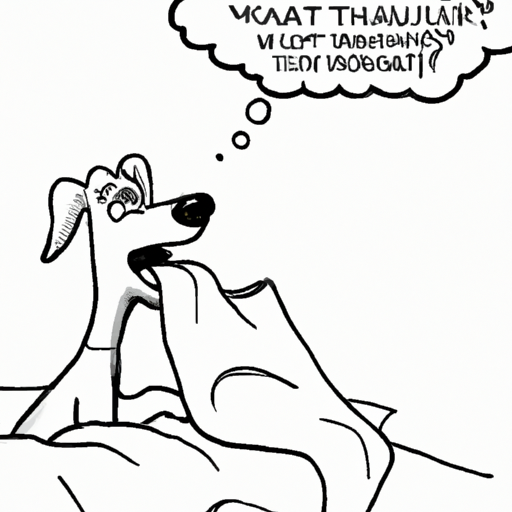Understanding Your Dog’s Behavior
Dogs have a wide range of behaviors and instincts that can sometimes be perplexing to their human caregivers. You’ve likely seen your dog engage in behaviors that left you scratching your head, such as biting blankets. Why do dogs bite blankets? The answer is not as simple as you might think. It involves understanding a few key aspects of canine behavior and psychology.
Possible Reasons for the Behavior
There are several reasons why dogs might bite blankets, and understanding these can help you address the behavior if it becomes problematic.
-
Teething: This is a common reason for puppies to bite everything in sight, not just blankets. It’s their way of easing the discomfort of new teeth coming in.
-
Anxiety or Stress: Just like humans, dogs also use certain behaviors as coping mechanisms when they’re feeling anxious or stressed.
-
Boredom: Dogs can get bored too, and biting a blanket can provide a diversion.
-
Instinct: The act of biting or chewing soft materials can also be linked to a dog’s instinctual behaviors.
How to Address the Behavior
If your dog’s blanket-biting is causing concern, there are several steps you can take to address the matter.
-
Positive Reinforcement: Reward your dog when they choose toys over blankets. This can help reinforce the idea that toys are for chewing, not blankets.
-
Provide Chew Toys: Ensure your dog has plenty of appropriate items to chew on.
-
Exercise: Regular physical activity can help alleviate boredom and anxiety, reducing the likelihood of problematic chewing.
-
Professional Help: If the behavior persists, it may be a sign of a more serious issue like separation anxiety. In such cases, consulting with a professional dog behaviorist can be beneficial.
Understanding the Impact on Your Dog’s Health
Excessive biting or chewing on blankets can have potential health implications for your dog.
| Potential Health Issue | Description |
|---|---|
| Dental Problems | Constant chewing can lead to dental issues such as broken teeth or gum injuries. |
| Digestive Issues | If your dog swallows pieces of the blanket, it could lead to digestive issues such as blockages or upset stomach. |
| Anxiety | If the behavior is linked to anxiety, it can indicate a deeper mental health issue that needs to be addressed. |
FAQs
Q: Is blanket biting normal for dogs?
A: In moderation, yes. However, excessive biting can be a sign of underlying issues like stress, anxiety, or boredom.
Q: When should I seek professional help?
A: If the behavior persists despite your efforts, or if your dog seems distressed or is damaging their health, it’s time to consult a professional.
Q: Can I train my dog to stop biting blankets?
A: Yes, through positive reinforcement and providing the right chew toys, you can redirect their biting behavior.
Q: Can blanket biting harm my dog?
A: Yes, it can lead to dental and digestive issues, particularly if they’re swallowing pieces of the blanket.
Remember, your dog’s behaviors are a window into their well-being. As their caregiver, understanding and addressing these behaviors is crucial to ensuring their health and happiness.



